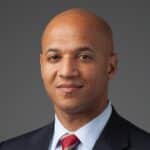
John Barros
As Boston recovers from the pandemic, we must approach growth and development in a way that is forward-thinking, sustainable and above all, inclusive. We have an opportunity to make housing more affordable while getting creative about placemaking to bring vibrancy back to our neighborhoods as the pandemic lifts.
Boston has been laying the groundwork to be able to recover from an economic crisis for a long time. Over the past seven years, we planned for, and executed, sustainable growth. As chief of economic development, I led the effort to balance robust economic growth with impactful community investment.
The BPDA approved more than 80 million square feet in new development, including nearly 16 million square feet in 2020 alone, despite the pandemic. The city permitted over 30,000 new homes, and more than 27 percent of units approved in 2020 were income restricted affordable. We brought 140,000 good new jobs to Boston, with historic investments in job training for local residents. We maintained perfect AAA bond ratings, allowing us to make historic capital investments in schools, transportation and climate resilience. We provided tens of millions of dollars of relief to hard-hit communities, and small businesses when the COVID crisis struck, and a study reported in the New York Times named Boston the city best positioned to make a strong economic recovery from COVID.
I believe we will be successful, but only if we can come together as a city and stimulate economic growth while addressing the deep inequalities that low-income residents and people of color still face. The federal stimulus money could prove extremely helpful, if we leverage that funding in a smart and strategic way. We must capitalize on this stimulus funding through one-time sustainable and equitable investments that boost jobs and make our economy more inclusive.
Boost Housing Production
First and foremost, we need to take aggressive action to keep people safely housed amid the current eviction crisis, through a combination of rental assistance and other interventions.
I will significantly increase our overall housing production to keep up with demand and stabilize the market, and increase the percentage of housing in Boston that is designated affordable. We need to increase the density of housing in areas close to public transit and other amenities. I will also look to amend the permitting process in a way that improves efficiency, accessibility and predictability, ensuring that all new development better incorporates the priorities of residents.
I will support neighborhood-based growth plans by creating and supporting shared ownership programs and community land trusts. This is a huge opportunity to improve housing affordability for low-income and people of color, while giving communities greater ownership stake over the future of their neighborhoods.
More broadly, we need to approach development in a way that brings our city back to life and encourages local job creation. Too often, business development and community investment are looked at like an “either/or,” when in fact the two go hand-in-hand. We need to encourage sustainable development without displacement in order to generate the millions of dollars in tax revenue we need for our public schools, public health programs and more. We need to make it clear that Boston is open for business and welcomes investment, while directing more resources and opportunities to Boston’s neighborhoods, particularly to low-income and communities of color.
Invest in Transit, New Public Spaces
Development must be coupled with a major investment in public transit. We must be shovel-ready to partner with the federal infrastructure program. Two of our big transit priorities should be creating more bus rapid transit and further expansion and improvement of rail, including the Fairmount Line. Improving transit options, especially in communities of color, is essential to an equitable and green recovery.
We also need to accelerate our Carbon Free Boston program by raising net zero carbon standards for new development, and implement all of the resilience projects identified in Climate Ready Boston to protect our neighborhoods from climate impacts like flooding and heat. This is a tremendous opportunity to create green jobs, and invest in the long term health and safety of our neighborhoods.
Finally, I believe that an intentional investment in open space, art and culture and community gathering places is essential to our recovery from COVID, and that should be better reflected in our development policies. There is an opportunity for us to bring the city, its residents and developers together to re-imagine and improve our public realm, through a creative use of space.
By creating more welcoming public and private venues where people can come together, experience art and culture and exchange ideas, we can reinvigorate the sense of exploration and innovation that has made Boston such an engine for innovation and economic opportunity over the past several years. It will help us rebound from the pandemic by re-building community and welcoming more vibrancy back into our neighborhoods.
John Barros is a candidate for mayor of the city of Boston in the fall 2021 elections. He was the city economic development director under former Mayor Marty Walsh.






